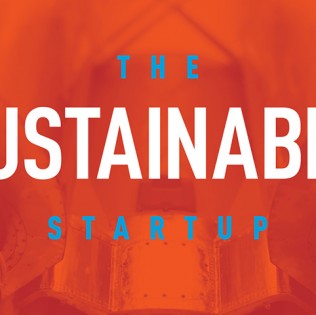by Adam Snelling
Published on April 5th, 2010
The Great Wall of China
Terry Drabiuk (above) is the owner of CPI Training (www.cpit.ca), a project management firm that represents 100s of independent educational consultants from around the world. Mr. Drabiuk has travelled to and worked in over 50 countries and has helped governments and corporations build national capacity through education.
In my previous Oil and Gas magazine article, “Made in China”, I admitted that I was not an economist. I do not want to belabor the $12+ trillion US debt, and I hope there will be some turn around in their economy in the near future. However, we do know that China’s surplus is going in the opposite direction and is now estimated at over $2 trillion. All predictions were that China would surpass Japan in 2010 and become the world’s second largest economy. It didn’t take that long. On Dec. 27th, 2009, Wall Street announced that China’s economy had, indeed, surpassed Japan’s. Some economists are now saying that China will become the largest economy within the next decade.
When I first went to China, my seasoned Asian employees told me that there was no way I would be able to develop a corporate educational market like the ones we have in the Middle East or North America. Even government experts who live in China admit that the education market is mature, and in some cases, saturated, and difficult to penetrate. I am not saying the mission has been easy; however, I seem to be drawn back to this intriguing country by corporations who seek assistance through education. Yes, Chinese negotiators are detailed, taxing, and astute; but in my experience, when they make a decision, they execute quickly and their word is as good as a contract. By no means am I saying that the Chinese always act in good faith. Just ask Google or BlackBerry (re: the BlueBerry). However, if you spend the time to develop the relationships and connect with the right partners, your experience can be fruitful. In fact, my brother and I own a health drink company based out of Utah (www.pft.com), and we distribute our products throughout the country. Our Chinese partners have gone out of their way to support our efforts and have developed multiple marketing campaigns over and above what is in our contract. Due, in part, by these efforts, Southeast Asia is quickly becoming one of our biggest markets.
In general terms, I suspect those of you who travel and do business in China will concur that the Chinese make decisions quickly and embrace growth. Here are some examples:
- I happened to be in China when Prime Minister Harper made his first visit to Beijing in early December 2009. Days after the PM left the country, the Chinese government announced their plan to allow (for the first time) Chinese citizens to travel to Canada on a tourist visa. For Canadian sectors such as tourism and education, this move was a positive sign.
- Another example of expedited decision making was when we had a contingent of instructors performing a Phase I assessment to prepare for a long-term training program. Our subject matter experts suggested some expensive equipment was required to deliver the training. The next day, the equipment was installed. In Canada, there would have been a capital review committee established, and, if approved, the equipment would have been purchased in the next fiscal year.
- A personal example is when CPI Training in partnership with MacEwan University launched its International Project Management program. We sent our e-newsletter to clients all over the globe, and, within a day, 16 Chinese students had registered.
For those of you who have yet to venture into China, but are planning or wanting to do business within the country, here are a few links and resources I would recommend:
- Petroleum Sector - Mr. Han at the CNPC Alberta Petroleum Centre is well-connected and can offer some excellent advice: www.capcbj.com.cn
- All Sectors - Sam Wollard at Asia Briefing is a great source for up to date information. They also have a number of “How to do Business in China” publications. www.asiabriefingmedia.com
- All Sectors – Don Norris from Bamboo Strategies. Don lived in South East Asia, including in China for over 12 years, and he owns and operates a consulting firm specializing in helping companies enter the market. www.bamboostrategy.com
- All Sectors -David Wong at the Alberta Office. If you are an Alberta based business, seek David’s advice or at least let him know you are in the country. He can always point you in the right direction. www.albertachina.com/en/onlineresources.html
- Education – I am using Studying Abroad On-line (SAO). Don’t let the name of the company mislead you. There are a number of Canadian, US, Australian, and European institutions and companies who use their services to recruit and attract students. www.chuguo.cn
- All Sectors – No matter what country you want to do business in, I highly recommend you contact the Canadian Embassy and get in touch with the trade commissioner who represents your industry. This is a link to the embassy in Beijing: www.canadainternational.gc.ca/china-chine
Did you enjoy this article?
 Warren Macdonald Lost his Legs but he Climbed Mt. Kilimanjaro Anyway!
Warren Macdonald Lost his Legs but he Climbed Mt. Kilimanjaro Anyway! A Glance Into Sheryl Sandberg’s “Lean In: Women, Work, And The Will To Lead”
A Glance Into Sheryl Sandberg’s “Lean In: Women, Work, And The Will To Lead” Education: Through the Eyes of a Venture Capitalist
Education: Through the Eyes of a Venture Capitalist The 7 Principles of a Sustainable Startup
The 7 Principles of a Sustainable Startup The Unlearning Curve
The Unlearning Curve